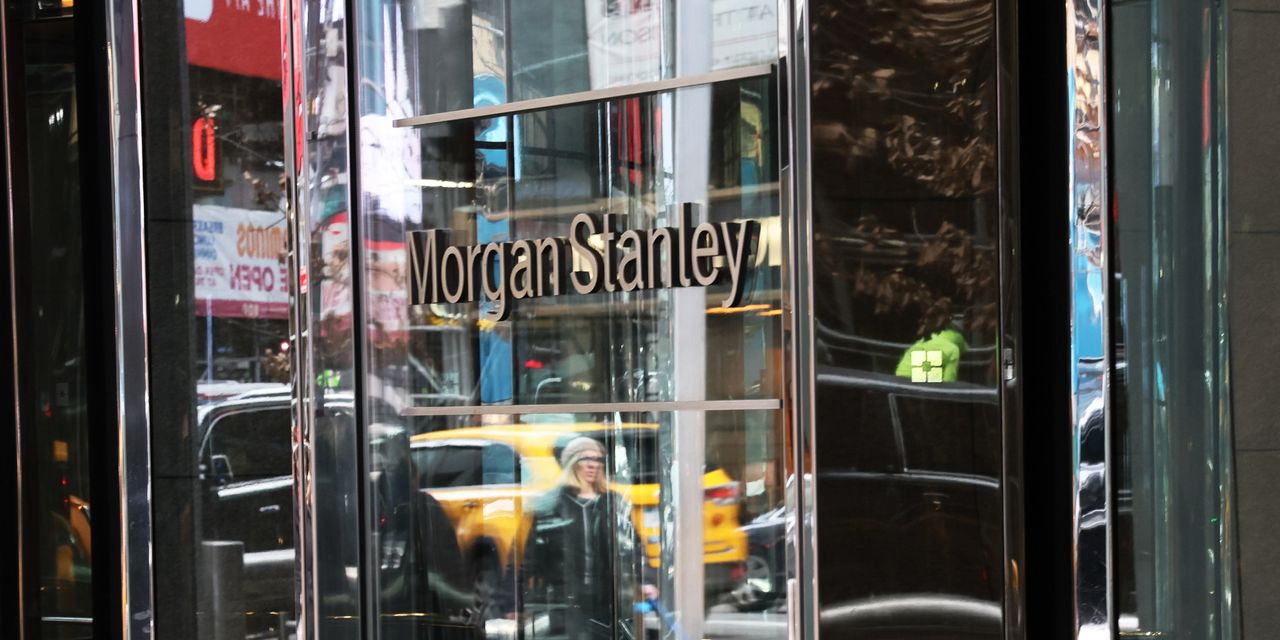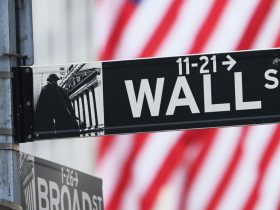Morgan Stanley strategists have been almost apologetic about their view that the stock market would struggle, in a year in which the S&P 500
SPX
has gained 16%. But less remarked upon is that the investment bank’s team made another wrong call, in being bullish government bonds.
“We stand alone, with conviction, telling investors to buy government bonds, despite incessant selling and weak price action, driven by backward looking and – in our view – questionable narratives,” say the team led by Matthew Hornbach.
The yield on the 10-year Treasury
BX:TMUBMUSD10Y
has climbed 43 basis points this year, and the yield on the 30-year Treasury
BX:TMUBMUSD30Y
has gained nearly the same, 40 basis points. Yields move in the opposite direction to prices.
The strategists in particular are recommending the 5-year U.S. Treasury
BX:TMUBMUSD05Y,
and the 30-year Treasury inflation-protected security.
One narrative they shoot down is the idea of a foreign buyer strike. “The yield curve is too inverted to attract overseas investment, so the logic went. And won’t investors abroad – especially those in Japan – repatriate capital instead?” But the Fed’s financial accounts report showed that far from selling, overseas investors bought more Treasurys last quarter than in any quarter but one going back a decade.
But most of their analysis is on the economy, and how unimpressed they are by it. They point out that gross domestic income — which in theory, should produce the same account of the economy that gross domestic product does — is showing far more feeble growth than GDP does. Last year, GDP+, the average of real GDP and real GDI, grew at just a 1% clip. (That discrepancy continues — in the second quarter, GDP grew by 2.1% while GDI rose by just 0.5%.)
They also note that the risks of a negative monthly payroll print are growing. Just taking into account the slowing momentum, a two-standard deviation sized downside miss could turn payrolls negative as early as the October report that is released in November. The recent 310,000 downward revision to past payrolls was unusually large outside of recessions, they add.
The National Association of Credit Management’s monthly survey of U.S. credit and collections professionals reached a new low in August, and credit managers reported a new deterioration in the amount of credit they extended. “This should revive concerns from earlier in the year that banks would pull back on credit provisions,” they say, with some other NACM data, on sales and dollar collections, consistent with crash landings.
The markets
The big story in markets was in the world of currencies, as the dollar slumped against the Japanese yen
USDJPY,
after Bank of Japan Gov. Kazuo Ueda said the country might have data by the end of the year to end negative rates. U.S. stock futures
ES00,
NQ00,
rose, and the yield on the 10-year Treasury
BX:TMUBMUSD10Y
rose 3basis points to 4.29%.
For more market updates plus actionable trade ideas for stocks, options and crypto, subscribe to MarketDiem by Investor’s Business Daily.
The buzz
Tesla shares
TSLA,
rallied in premarket trade as Morgan Stanley upgraded the company to overweight from equal-weight and lifted its price target to $400 from $250, citing the potential for its new machine learning supercomputer, Dojo.
Qualcomm
QCOM,
said it will supply modem chips for Apple
AAPL,
iPhones for at least three more years.
The Fed is now in the “blackout” period before the next rate decision. The Wall Street Journal’s lead Fed reporter says an important shift is under way, as some but not all officials think the risks from tightening too much are balanced by the risks of not tightening enough.
Ahead of Wednesday’s inflation data, the New York Fed will be releasing its monthly look at consumer expectations, which includes a look at inflation expectations.
Shares of Hostess Brands
TWNK,
rallied as it announced a deal to be acquired by J.M Smucker
SJM,
in a cash-and-stock deal valued at $5.6 billion.
Instacart has set the terms of its initial public offering, with a proposed market capitalization of $7.5 billion.
Marc Tessier-Lavigne, who resigned as Stanford president in a research scandal, is leaving the board of Regeneron Pharmaceuticals
REGN,
Best of the web
A U.S. House panel is conducting a Taiwan war game with Wall Street executives.
The Food and Drug Administration is re-evaluating the effectiveness of a common nasal congestion ingredient.
Musk biographer changes account of Starlink disabling Ukraine drone attack.
Top tickers
Here were the most active stock-market tickers on MarketWatch as of 6 a.m. Eastern.
| Ticker | Security name |
|
TSLA, |
Tesla |
|
AMC, |
AMC Entertainment |
|
NVDA, |
Nvidia |
|
AAPL, |
Apple |
|
GME, |
GameStop |
|
NIO, |
Nio |
|
MULN, |
Mullen Automotive |
|
CGC, |
Canopy Growth |
|
TTOO, |
T2 Biosystems |
|
AMZN, |
Amazon.com |
The chart
The interest coverage ratio for both investment grade (shown here) and high-yield companies is deteriorating, says Torsten Slok, chief economist of Apollo Global Management. “The downside risks to the economic outlook are intensifying with falling interest coverage ratios combined with rising consumer delinquency rates, households running out of excess savings, and student loan payments coming back,” he says. Slok puts the likelihood of a hard landing for the economy at 60%.
Random reads
Flamingos have ended up as far north as Pennsylvania after Hurricane Idalia.
The new fashion trend, no matter the politics, is 1950s housewife.
Need to Know starts early and is updated until the opening bell, but sign up here to get it delivered once to your email box. The emailed version will be sent out at about 7:30 a.m. Eastern.
Listen to the Best New Ideas in Money podcast with MarketWatch financial columnist James Rogers and economist Stephanie Kelton.
Read the full article here













Leave a Reply